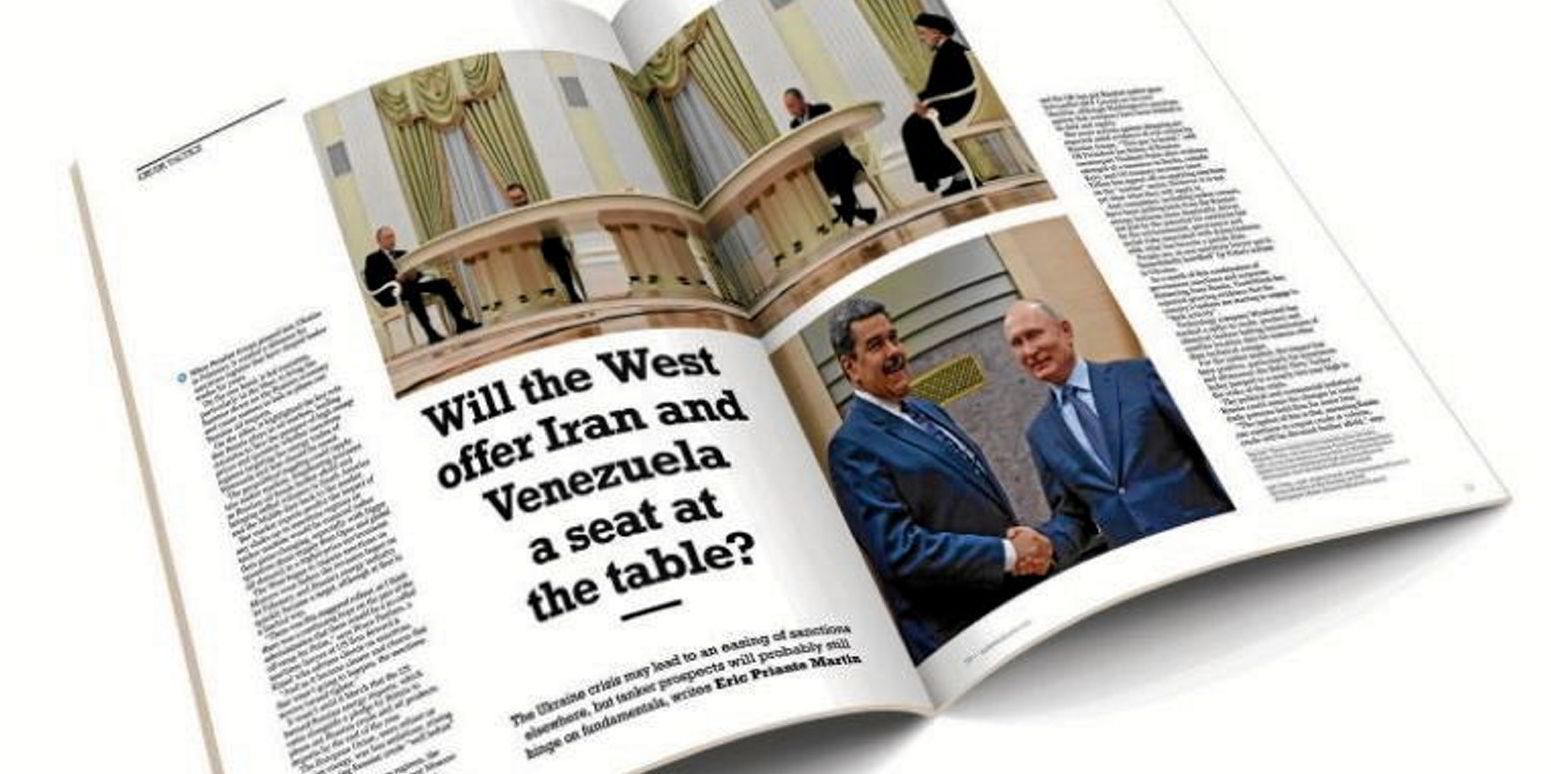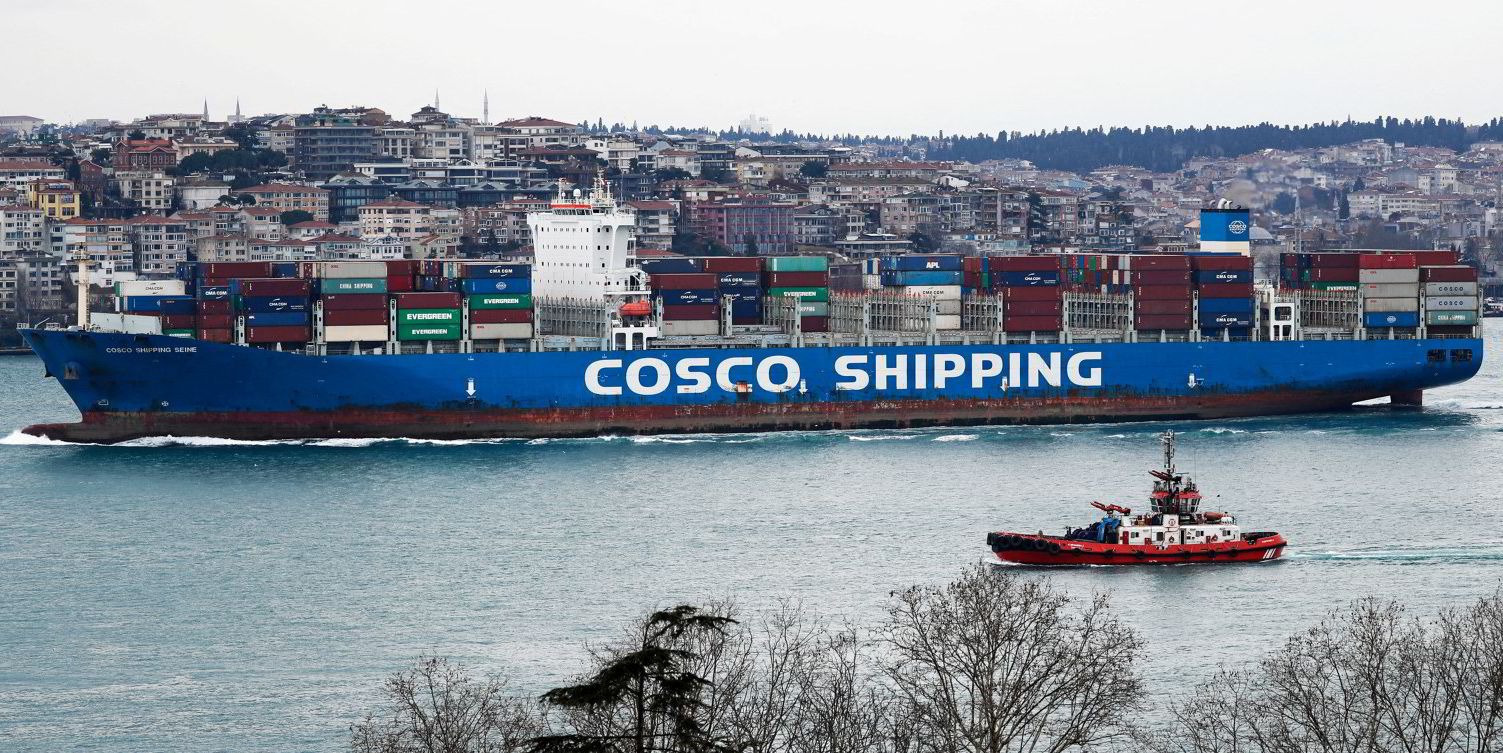Shipowners are facing the prospect of rethinking the way they do business and charter vessels after the shock of Russia’s invasion of Ukraine.
For those trading to the Black Sea, many customers, former major charterers and exporters are under blockade. In some cases, manufacturing centres and loading ports lie in ruins.

This story is part of a series in TW+ magazine on the wide-ranging impacts of the Russia-Ukraine conflict on shipping. Read the full stories when the magazine is published on 20 May.
And once the war is resolved, new borders may have been drawn around the trading centres and the resources they serve.
The way contracts are drafted and disputes resolved may need to change as well.
TW+ spoke to a number of maritime lawyers and arbitrators with insight into the region and the legal challenges the war has already brought.
The sanctions against Russia that came in a wave after the invasion are different in scale from the routine measures taken against smaller rogue states in recent years.
They have also been different psychologically, partly because of the degree of unity among Western governments in opposition to the invasion, but also because of the increasing corporate sensitivity to environmental, social and governance (ESG) issues.
ESG has made reputational risk more actionable in the C-suite and shipowners have got better at seeing red flags.
“There will always be as many problems related to the anticipated breach of sanctions as to actual breaches,” says London arbitrator Daniella Horton.
Horton is a past honorary secretary of the London Maritime Arbitrators Association (LMAA) and a Russian speaker with close ties to eastern Ukraine’s Donbas region.
Cate Baddeley, partner at London law firm Preston Turnbull, another with insight into such disputes, has seen a huge upsurge in enquiries about sanctions.
During February, she reckons she had one or two clients looking for advice on the subject; in March, the number was more like 35.
“From a legal perspective, there’s a lack of clarity in recent sanctions. I suspect that’s on purpose, and the effect is to tend to make clients more cautious,” she tells TW+.
So far, Baddeley’s post-invasion sanctions cases have been mostly related to run-off business, as shipowners and charterers figure out what to do about contractual commitments they incurred when the exposure to sanctions seemed hypothetical.

On the one hand, there are clients who are trying to figure out whether and how it is possible to carry out business they have already contracted. For these, the risk is violating sanctions regimes that are unclear and untested but that might bring draconian penalties.
Some will be willing to run the risk.
Horton compares the case of South African legal sanctions and reputational pressure in the 1980s.
“Where there are sanctions, there will be people finding ways around them,” she says. “What I believe used to happen is that a shipowner trading with South Africa would have bills of lading that said Mozambique, and they would go to Durban instead.”
Greater transparency about vessel movements has changed the world, though. “What appears to have worked then won’t work now,” she says.
Then there are those who are not seeking to skirt the rules but to go beyond the letter and “self-sanction”.
Self-sanctioners may be people who want to be on the safe side and stay ahead of the curve of an evolving sanctions regime. Or they may want to avoid the reputational damage of doing business with the unpopular aggressor. Or they may simply be trying to do the right thing.
Chris Nolan, a partner with New York maritime law firm Holland & Knight, is one who takes the reputational question very seriously.
“How long should someone be forced to do business with a company with Russian or Belarus ties, when your people are saying: ‘This is not who we are’? Contracts mean something, but this is a unique moment in history. This is a country waging war against another, where the rest of the civilised world is shocked.
“To ask companies to continue doing business as usual with Russian counterparties has to be re-evaluated,” he says.
Horton says that for shipowners or operators with Russian vessels on charter, the potential damage is in some cases not just reputational but a risk of catastrophic losses from chartering a commercially dead ship.
“The risk was that commercially, nobody was going to be able to trade your ship. Within six weeks, you went from Russian vessels being perfectly acceptable to go anywhere to their being almost untouchable,” she says.
“It’s a really fast-moving area and people have been understandably fearful.”
But for many would-be self-sanctioners, the risk is violating contract terms and facing a hefty arbitration claim.

“For example, the owner could be affiliated to a UK sanctions-designated entity but there might be no technical breach of the charter because the counterparty is not subject to UK law but EU law,” Baddeley explains. “The clausing might be too narrow for the counterparty not to go ahead with the charter, even though it is afraid to do so.”
Horton gives the example of Vladivostok in the Russian Far East, 7,000km (4,400 miles) from the theatre of war: “I have heard of some shipowners not wanting to go to Vladivostok just because it is Russian. But it didn’t fall under any sanction.”
She also knows of a case around the beginning of the invasion on 24 February that will never see a courtroom or an arbitration panel, in which operators were in a hurry to break a Russian link but had no legal basis to do it, and found a commercial solution.
“Charterers had a couple of Russian-flag vessels on medium-term time charter, and their initial reaction was how to get out of the charter. They were afraid it was possible the vessels might be requisitioned by the Russian government,” Horton says. “They found that it was reputationally and commercially better to redeliver early and pay compensation for doing so.”
She expects most difficulties will be solved in a practical ad-hoc way, with no panels or judges.
“As someone who has been both a solicitor and in-house counsel before I was an arbitrator, I can say that shipping people have a very commercial approach to solving problems,” Horton says. She cites a former boss who sometimes calls her to describe a situation and ask: “Are we right or are we wrong?”
“Sometimes shipping people only need a steer,” she adds.
In the tougher cases, the problem in knowing how to prevent uncertainty is that not only the fresh sanctions rules, but also the well-worn charter and sales contract clauses, are surprisingly slippery and in some cases judicially untested.
“One fairly standard wording relating to the right to termination in charterparties is ‘reasonable risk of sanctions’ or ‘reasonable expectation of sanctions’,” Baddeley says. “I’m not aware of its being litigated.”
With language that vague, lawyers for the side wanting to terminate and for the side wanting to perform will have a lot to fight over before an arbitration panel.
As the unilateral and multilateral sanctions regime takes shape, new clauses may have to be developed to give parties clarity and flexibility — to the extent that those two goals are compatible.
Baddeley believes clauses will need to be worked out on a case-by-case basis, especially by shipowners and charterers who want to remain involved in specific regional trades, as commercial activity resumes after the war.

But the devil is in the detail and the goals of two sides drafting charters are often going to be different. “It depends if you want an easy out, to be able to back out if necessary,” Baddeley says.
But a big charterer may succeed in resisting such language.
Meanwhile, Horton points out that better clausing would not necessarily solve all problems: “I can imagine force majeure and frustration disputes being quite prolific in the future.”
But will there be new clauses drafted as a result of the new focus on sanctions problems?
“There are definitely people looking into these clauses,” she says.
One problem, however, is that the doctrine of “frustration”, under which a contract can be invalid when circumstances make it unperformable, must clear a high threshold under English law. And force majeure does not exist in English common law, so it has to be created in contract terms. Sales contracts, but not shipping charterparties, often contain force majeure clauses.
They should definitely be reviewed and tailored for those exposed to sanctions issues, Horton says.
“But the difficulty there is that if an event is foreseeable enough to write into your contract, it’s not force majeure. Force majeure clauses generally refer to something neither party can foresee,” she adds.
Still, entities in Ukraine should be looking for lawyer-tailored clauses. And in general, shipping contracts may get more lawyers’ eyes on them.
“Sales contracts tend to be drafted by lawyers, whereas a lot of charterparties tend to be drafted on the chartering desk, and it is rare that the parties go to lawyers for drafting. That may change,” Horton says. “Shipowners may be thinking: ‘Do we run this by our legal department, by external lawyers?’
“I am already aware that London lawyers are being inundated with enquiries since 24 February.”
Help may be on the way for shipowners who are in a sanctions bind and confused about their options.
Prominent arbitrators in London and the US have told TW+ that recent innovations in maritime arbitration procedures on both sides of the Atlantic have made it easier to nail down ambiguous language without waiting for a contentious and expensive arbitration fight.
Nolan, who also serves as chairman of the arbitration committee of the US Maritime Law Association, says part of the reason for the new flexibility has to do with special demand during the pandemic.
“During Covid, while the US courts were basically closed, the US Society of Maritime Arbitrators [SMA] leaned into the power of declaratory relief,” he says.
SMA president LeRoy Lambert confirms this, and says the group has now voted to formalise the power to grant expedited declaratory relief that US courts have already recognised in practice. The society’s rules allow a single party to be awarded expedited relief even if the second party does not participate.
Declaratory relief from courts or arbitrators can involve a preliminary binding determination of the legal and practical implications of contract language while the contract is still being performed.
In London, a similar flexibility is available, and the LMAA adopted guidelines for virtual hearings early in the pandemic, at the end of May 2020.
“If two parties both want declaratory relief, they could have their award within three or four weeks after the tribunal is constituted,” London arbitrator Horton tells TW+. “LMAA terms and procedures have always allowed for expedited procedures.”
She describes a further alternative “akin to declaratory relief” that is available under London rules since January this year — early mutual evaluation (EME), whereby the parties appoint an evaluator to examine a question such as the sanctions provisions of a charterparty.
“The evaluator looks at issues broadly — a helicopter view — and that is often enough for the parties to clarify their positions,” she says. “It’s a lot more cost effective than running the issues all the way through an arbitration. The P&I clubs like it!”
But EME is non-binding and not enforceable unless the parties choose to make it so.
“If you want something you can take around the world and get enforced, you need an arbitration award,” Horton says.






